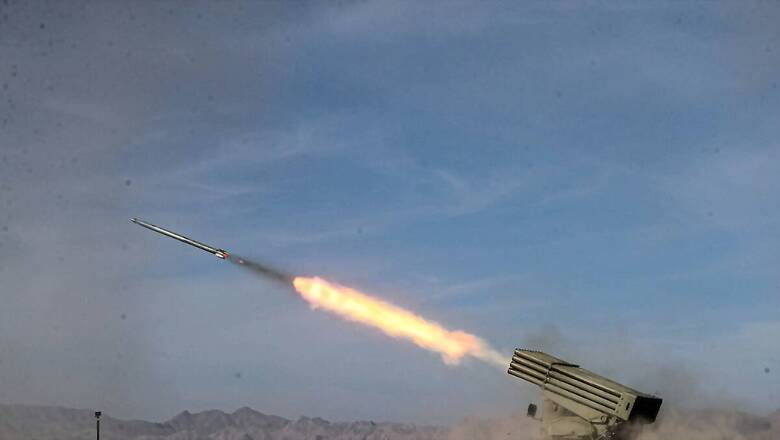
views
Tension between India’s two key allies Israel and Iran has put New Delhi in a challenging position. While India maintains strong economic and strategic ties with both nations, it also advocates for a peaceful resolution to their conflict. This delicate balancing act requires India to navigate a complex geopolitical landscape with careful diplomacy and nuanced decision-making.
Israel-Iran Conflict
The relationship between Israel and Iran has long been characterized by deep mistrust and outright hostility. Each nation views the other as a fundamental threat to its existence, a perception that has only intensified in recent years.
Iran’s support for groups like Hezbollah and Hamas, which have engaged in violent actions against Israel, has been a major point of contention. This dynamic has been further complicated by Iran’s nuclear ambitions, which Israel views with extreme concern.
The US withdrawal from the Iran nuclear deal in 2018 and the subsequent reimposition of sanctions have only exacerbated tensions, further isolating Iran and creating a more volatile regional environment.
Against this backdrop of simmering tensions, several recent events have brought the conflict to a boiling point and raised fears of a wider regional conflagration. Perhaps the most dramatic was the assassination of Ismail Haniyeh, the Chief of Hamas’s Politburo, in Tehran.
Assassination of Hamas Chief Ismail Haniyeh
Haniyeh was a prominent figure who played a key role in negotiations and public relations for Hamas, especially after the October 7 attacks on Israel last year. He frequently travelled between Qatar, where Hamas maintains its political headquarters, and Iran, highlighting the close relationship between the two.
His assassination on Iranian soil, after attending the inauguration of the newly elected Iranian president, fuelled a major provocation that has significantly raised tensions. This act could easily trigger a forceful response from Iran and its allies, potentially drawing the region into a wider conflict.
Adding to the volatility, Iran launched drone and missile strikes against Israeli military targets in April 2024, a significant escalation that marked the first time Iran directly targeted Israel’s military infrastructure. This action underscored Iran’s growing military capabilities and its willingness to use force to pursue its objectives.
Iran’s Nuclear Program
Further fueling anxieties is Iran’s continued pursuit of its nuclear program. While Iran maintains that its nuclear activities are solely for peaceful purposes, Israel and many Western powers remain unconvinced. The collapse of the nuclear deal and the reimposition of sanctions have made it more difficult to monitor and constrain Iran’s nuclear activities, increasing the risk of miscalculation and escalation.
Gaza War
And looming over all of this is the ongoing war in Gaza and its devastating toll on human life. Iran has openly supported Hamas while condemning Israel’s military response, further entrenching the divides and raising the stakes in this long-standing conflict. The situation is further complicated by the pronouncements of Hassan Nasrallah, the leader of Hezbollah in Lebanon.
Nasrallah has vowed a “strong and effective” retaliation for Haniyeh’s death, while Israeli jets have conducted provocative flyovers over Beirut. Meanwhile, Hamas has appointed Yahya Sinwar, a hardliner and key figure in the October 7 attacks, as its new leader.
India’s Strategic Interests
India has strong economic and strategic interests in West Asia, making it a key stakeholder in the Israel-Iran conflict. The region is crucial for India’s energy security, with a significant portion of its oil imports originating there. Any disruption to the flow of oil from this region could have serious consequences for the Indian economy.
While India has made progress in diversifying its energy sources, including increasing imports from the US and Russia, West Asia remains a vital source of oil, particularly given its proximity and established trade routes.
Beyond energy, the region is a significant market for Indian exports and a source of remittances from the large Indian diaspora working in the Gulf countries. These economic ties contribute significantly to India’s economic growth and development.
Furthermore, India is a major investor in infrastructure projects in the region, including the strategically important Chabahar Port in Iran. This port provides India with access to landlocked Central Asia and Afghanistan, bypassing Pakistan, and is seen as a key element in India’s regional connectivity strategy. Developing the port and associated infrastructure is a long-term commitment for India, with implications for trade, investment, and regional influence.
India’s push for the India-Middle-East-Europe Economic Corridor, which aims to connect India with Central Asia and Europe, hinges on a peaceful and stable regional environment.
This ambitious project, which involves the development of infrastructure and trade routes across land and sea, would give India access to new markets and enhance its regional influence. It is also seen as a way to counter China’s Belt and Road Initiative.
However, the escalation of the Israel-Iran conflict could disrupt these plans and jeopardise India’s long-term economic and strategic goals.
India-Israel Relationship
India also has strong ties with Israel, a major supplier of defence equipment. The two countries have close military and intelligence ties, and Israel’s advanced technology and military capabilities are seen as vital to India’s modernisation efforts.
This relationship provides India with access to cutting-edge military technology, intelligence sharing, and joint development of defence systems. The two countries also share common concerns about terrorism and extremism, and they have cooperated on counterterrorism initiatives, including intelligence sharing, joint training exercises, and the development of counterterrorism strategies.
Navigating a Complex Geopolitical Landscape
Amidst the escalating tensions and violence, India has maintained a cautious approach, striving for a balance that protects its diverse interests. While condemning terrorism and advocating for peaceful dialogue, India has refrained from explicitly taking sides in the immediate aftermath of Haniyeh’s assassination, recognizing the sensitivities involved.
This approach aligns with India’s long-standing policy of non-alignment and its desire to maintain strong relationships with both Israel and Iran, as well as with Arab states in the region.
Maintaining this neutrality is a delicate balancing act. Any perceived bias toward one side could jeopardise India’s relationships with the other, potentially leading to economic and strategic consequences.
For instance, openly siding with Israel could damage India’s ties with Iran and put its investments in the Chabahar Port under threat. Conversely, supporting Iran could strain its growing strategic partnership with Israel and potentially alienate key Arab allies like Saudi Arabia and the UAE.
India’s Balancing Act
While the international community grapples with the implications of Haniyeh’s assassination, India has opted for strategic ambiguity. It has refrained from making direct statements about the incident, choosing instead to maintain a neutral stance.
This is partly due to the sensitive nature of the event, which could easily be construed as tacit approval of the killing of a leader associated with a designated terrorist organization. This cautious approach reflects India’s determination to avoid alienating either Iran or its Arab allies, particularly Saudi Arabia, which has also been careful in its response, choosing to prioritize Iranian sovereignty.
India’s balancing act is further demonstrated by its long-standing policy on the Israeli-Palestinian conflict. While historically backing the Palestine Liberation Organisation (PLO) since 1974, India has also condemned terrorism unequivocally. This was evident in Prime Minister Narendra Modi’s swift denouncement of the October 7 attacks on Israel, a move consistent with India’s firm stance against terrorism.
However, India has maintained its support for a two-state solution, maintaining diplomatic relations with Palestine and recognizing its statehood. This nuanced position allows India to engage with both sides while advocating for a peaceful resolution.
Prior to 1992, India prioritized its relationships with Arab states and Iran, maintaining a certain distance from Israel. The opening of the Indian embassy in Tel Aviv marked a shift, as Israel actively sought closer ties with India, seeing it as a key ally against Pakistan. This relationship blossomed, particularly in the realm of defence cooperation, with Israel becoming a major supplier of military technology to India.
The Arab states, particularly the UAE and Saudi Arabia, have emerged as significant economic partners, with massive investments flowing into India. This new economic reality has led India to participate in newer groupings like the I2U2, a forum that brings together India, Israel, the UAE, and the US to foster economic cooperation and technological innovation.
This engagement highlights India’s willingness to align with Western powers on certain strategic and economic issues, even as it seeks to maintain its non-aligned status.
Meanwhile, Iran remains a crucial factor in India’s strategic thinking, particularly regarding its neighbourhood policy. India sees Iran as a vital link to Central Asia and Afghanistan, regions crucial for trade and security.
Chabahar Port
The Chabahar Port, a joint project between India and Iran, exemplifies this strategic vision, providing India with an alternative route to these landlocked regions, bypassing Pakistan. Furthermore, India recognizes the importance of Iran in countering the threat of terrorism emanating from Afghanistan, which currently tops the 2024 Global Terrorism Index.
Domestic considerations
India’s position is further complicated by its domestic considerations. The conflict resonates within India, with strong sentiments both for and against the involved parties. This is partly due to the presence of large and diverse religious communities within India, including Muslims, Jews, and Christians, who have varying perspectives on the conflict.
The situation in Kashmir adds another layer of complexity, where expressions of solidarity with Palestine have sometimes intersected with sectarian tensions and political narratives. This domestic dimension necessitates a cautious and nuanced approach from the Indian government to avoid exacerbating internal divisions.
This trifecta of interests – Israel, Arab states, and Iran – presents a formidable challenge for India’s policymakers. Maintaining a strategic balance, navigating the complex web of relationships, and avoiding being drawn into escalating regional conflicts requires deft diplomacy and a nuanced understanding of the region’s intricate dynamics.
Efforts towards peace and dialogue
India has consistently advocated for a peaceful resolution to the conflict between Israel and Iran, urging both sides to exercise restraint and engage in dialogue. Recognizing the potential for this conflict to destabilize the entire region and jeopardize its own interests, India has actively sought to de-escalate tensions and promote a return to diplomacy.
This commitment was evident in India’s response to the recent escalation of hostilities, particularly following Iran’s direct attack on Israel in April 2024.
Immediately after Iran launched a barrage of drones and missiles against Israel, India expressed serious concerns and called for immediate de-escalation.
Foreign Minister S. Jaishankar engaged in direct talks with his Iranian and Israeli counterparts, emphasizing the importance of avoiding escalation, exercising restraint, and returning to diplomacy. These conversations underscore India’s proactive approach in attempting to mitigate the conflict and prevent further violence.
Beyond its direct diplomatic engagement with the parties involved, India has also taken concrete steps to address the immediate impact of the conflict. During his conversation with the Iranian Foreign Minister, Jaishankar secured the release of 17 Indian crew members who were aboard a cargo ship seized by Iranian forces in the Gulf of Hormuz. This swift action demonstrates India’s commitment to protecting its citizens caught in the crossfire of regional tensions.
India’s efforts to promote dialogue and peace in West Asia extend beyond the immediate crisis. India has also played a constructive role in fostering dialogue between Israel and the Arab world. Its support for the Abraham Accords, which normalized relations between Israel and several Arab states, highlights its commitment to building bridges and creating a more conducive environment for peace.











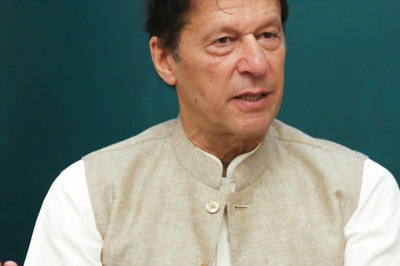


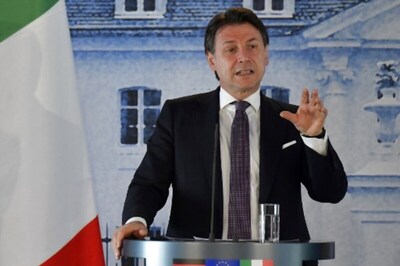
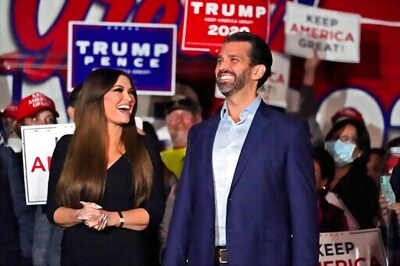

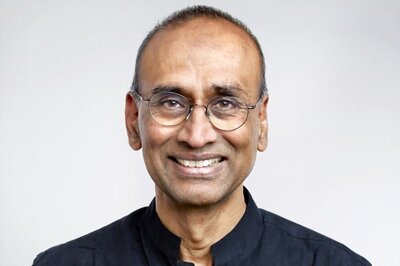

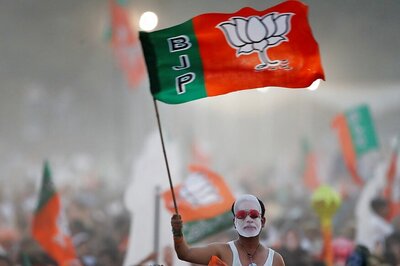
Comments
0 comment